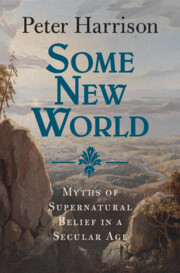6 - The Shape of History
Published online by Cambridge University Press: 29 March 2024
Summary
This chapter considers how the exceptionalism of Western naturalism was given legitimacy through an appeal to narratives of progress. These narratives were indebted to a Protestant model that divided history into two periods—one in which miracles were genuine, followed by another in which they were not. The latter was associated with fraudulent Catholic miracles. Protestants also understood the Reformation as having ushered in an age of light after a period of medieval darkness. Eighteenth-century philosophes generalised and extended this argument, contending that the miracle reports from all historical periods were fraudulent. History could now be divided into an earlier period characterised by a naïve credulity in relation to miracle reports, followed by a more mature phase of history during which there was increasing recognition of the falsity of miracle reports. These same eighteenth-century thinkers also arrogated to themselves the mantle of enlightenment. The progressivist histories characteristic of the early social sciences and endorsed by advocates of scientific naturalism were doubly indebted to religious models since they also drew upon providential or eschatological notions of historical directionality. This raises the question of whether their progressivist philosophy of history is problematically dependent upon covert theistic assumptions.
Keywords
- Type
- Chapter
- Information
- Some New WorldMyths of Supernatural Belief in a Secular Age, pp. 283 - 352Publisher: Cambridge University PressPrint publication year: 2024



